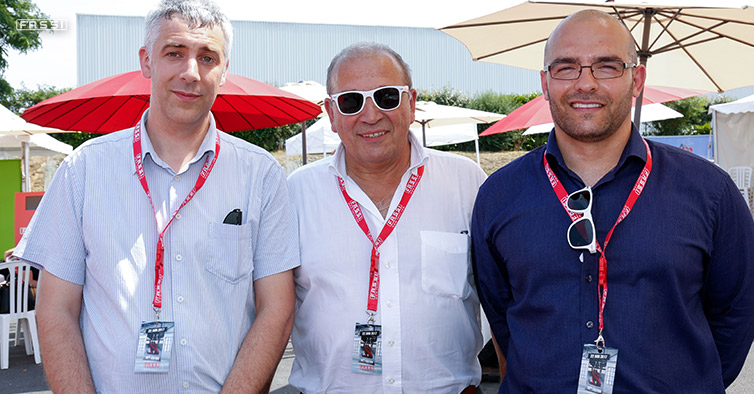Fassi France staff and guests celebrated the 18th edition of the annual “Journée Italienne” (Italian Day) at their headquarters in Saint-Ouen-l’Aumône
Paris (France) - On the 22nd June, more than 500 people took part in the 18th edition of the “Journée Italienne” (Italian Day), organised by Fassi France at their offices in Saint-Ouen-l’Aumône. During his welcome speech, company president Roger Boutonnet thanked the many participants, clients, partners and manufacturers of the brands represented: Fassi, Jekko and Marrel.
He emphasised that growth is a priority for the group, and that Fassi’s ability to produce increasingly avant-garde cranes of the highest quality has always been a fundamental factor in maintaining its position as market leader. Mr Boutonnet furthermore celebrated the results obtained by Marrel both in terms of the development of new products and of market growth.
Among the key themes of his speech were the importance of always moving forward and investing in innovation in order to remain at the forefront of the market.
Lastly, Roger Boutonnet welcomed two new colleagues: Nicolas Levasseur, the new technical director of Fassi France, and Thomas Gerard, the new commercial director of Miltra Paris Nord. The day continued with a presentation to the guests which featured Fassi, Marrel and Jekko’s latest releases. Entertainment, music and the participation of the entire Fassi France team made this a truly memorable day.
Among the key themes of his speech were the importance of always moving forward and investing in innovation in order to remain at the forefront of the market.
Lastly, Roger Boutonnet welcomed two new colleagues: Nicolas Levasseur, the new technical director of Fassi France, and Thomas Gerard, the new commercial director of Miltra Paris Nord. The day continued with a presentation to the guests which featured Fassi, Marrel and Jekko’s latest releases. Entertainment, music and the participation of the entire Fassi France team made this a truly memorable day.


